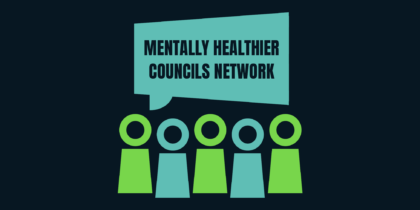Centre for Mental Health has informed an independent Commission set up by the West Midlands Combined Authority to explore how to reduce inequalities in mental health outcomes in the region.
The Commission’s 13 recommendations include increased efforts to:
- Widely adopt ‘whole school’ approaches that better look after the mental health needs of children and young people and seek to reduce permanent exclusions
- Become a Living Wage Place, where major employers pay at least £10.90 an hour and train, hire and buy more goods and services locally
- Make health and social care workforces and leaders more representative of the communities they serve as part of efforts to reduce structural racism
- Better fund and integrate local voluntary and community organisations into health systems
- Support more people, and especially those with mental health difficulties, to walk, cycle and take part in exercise.
Over the past year Centre for Mental Health has provided evidence, facilitated discussions and supported the Commission to collate its final report.
The West Midlands Combined Authority is a regional devolved body with an executive Mayor making decisions, with seven upper-tier councils, including Birmingham, serving over four million people.
The Covid-19 pandemic and subsequent cost-of-living crisis has drawn greater attention to mental health inequalities, both in the West Midlands and beyond, with deprived and racialised communities suffering far poorer mental and physical health outcomes.
To address these worsening mental health inequalities, a Commission of local people and organisations was formed to collect evidence and make recommendations.
The Commission explored the role of schools in supporting children and young people’s mental health; the cost-of-living crisis; racial inequality in mental health care; physical activity and sport; supporting thriving communities; and the role of the voluntary and community sector.
Key findings
Demand for children’s mental health services in the combined authority area had increased significantly (by an average of over 50%) in recent years as child poverty, isolation and stress had worsened. Evidence shows measures to reduce child poverty, abuse and neglect are key, along with improving school experience and access to social activities and support.
The cost-of-living crisis was causing and deepening poverty, which is a major risk factor for mental ill health as it increases stress, reduces resources for healthy choices and worsens environmental threats. Evidence shows that regional and local measures to reduce costs and increase incomes of the poorest can have a significant benefit to people’s mental health.
People from racialised communities experience poorer mental health outcomes than white British people, due to structural racism that exposes racialised communities to higher levels of poverty and stress and reduces their opportunities. Evidence shows that proactive measures are needed to ensure services are delivered and shaped by people from affected communities.
Physical activity is a significant protective factor for mental health. But one third of children and one in four adults in the West Midlands are doing less than the minimum amount of activity advised for good health. People from deprived and racialised communities are even less likely to get enough exercise. Structural barriers need to be reduced and removed to ensure more people from all parts of society can walk, cycle and take part in exercise and sport more frequently.
Social connections between people are vital for mental health, and the voluntary and community sector can help make these links, providing support in a way that enables people and communities to thrive. Austerity cuts and other funding challenges have weakened this sector and more works need to be done to ensure it is better resourced and supported.
For a long time Centre for Mental Health has been at the forefront of equipping local and regional government to use their powers and influence to improve the mental health of the people they serve. We’re delighted to have informed the work of the West Midlands Mental Health Commission which, if the recommendations are fully implemented, will make a positive difference to over four million people’s lives.







